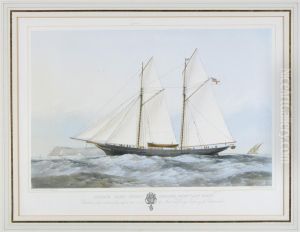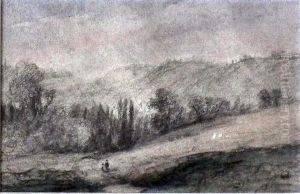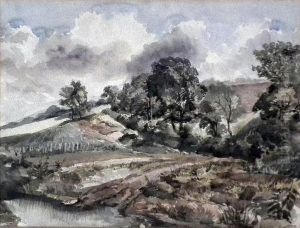Hans Busk Paintings
Hans Busk was a multifaceted British figure, notable not only for his contributions to the arts but also for his significant impact in the realms of military and social reform. Born in 1815, Busk's life was marked by a diverse range of interests and accomplishments, setting him apart as a unique character in the 19th century.
Busk's early life was characterized by education and a leaning towards intellectual and artistic pursuits. However, it is his role in the military and social reform movements that he is most remembered for. He was a key figure in the volunteer rifle movement in the United Kingdom, advocating for the establishment of volunteer forces for the country's defense. This movement was crucial in the formation of what would later become the Territorial Army. His efforts in this area demonstrated his commitment to national defense and his ability to mobilize and inspire others for a common cause.
In addition to his military interests, Hans Busk was also involved in social reform, particularly in the areas of education and poverty alleviation. He was an advocate for the improvement of public education and worked towards the establishment of mechanisms to aid the underprivileged. His philanthropic efforts were an integral part of his life's work, reflecting his desire to effect positive change in society.
As an artist, Busk's contributions were no less significant. Though perhaps not as widely recognized as his military and social reform activities, his work in the arts provided a creative outlet and another avenue through which he could express his ideals and visions. His writings and possibly other artistic endeavors highlighted his multifaceted talents and interests, from poetry to possibly visual arts, though specific details of his artistic works remain less documented compared to his other achievements.
Hans Busk passed away in 1882, leaving behind a legacy that encompassed a wide range of societal contributions. His life's work reflects a deep commitment to the betterment of his country and its people, through both direct action in the realm of defense and through efforts aimed at social and educational reform. Busk remains a notable figure in British history, emblematic of the Victorian era's spirit of improvement and innovation.


